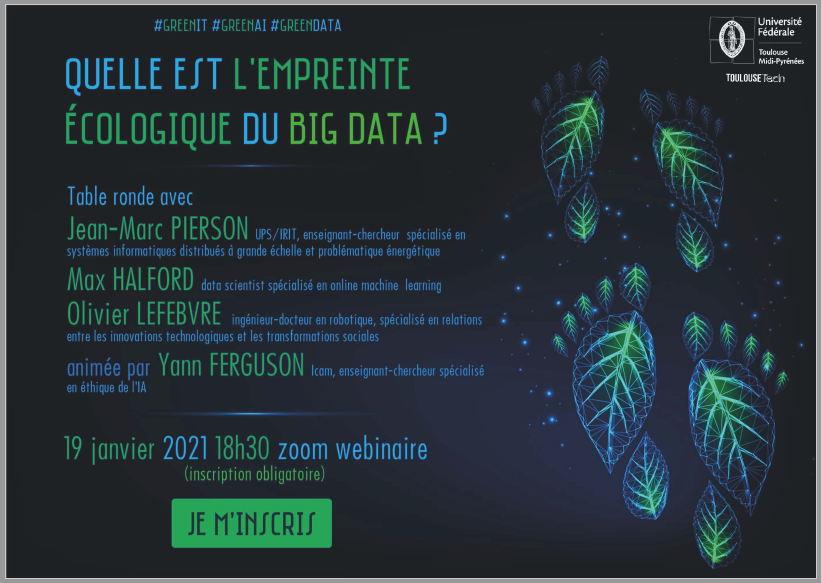Events calendar

Round table "What is the ecological footprint of Big Data?" - January 19, 6:30pm
As part of the "Data Science and Big Data" Certificate course, Toulouse Tech is organizing a round-table discussion on the ecological footprint of Big Data.
The event will take place online in the form of a zoom webinar.
With :
Jean-Marc Pierson // UPS/IRIT, teacher-researcher specializing in large-scale distributed computing systems and energy issues
Max Halford // Data scientist specializing in online machine learning
Olivier Lefebvre // Robotics engineer and researcher, specializing in the relationship between technological innovation and social transformation.
Discussion moderated by Yann Ferguson // Icam, teacher-researcher specializing in AI ethics
Data production and consumption are exploding worldwide. With the development of Big Data, data centers are multiplying, and their ecological impact, which was still minimal 15 years ago, now represents around 4% of global electricity consumption. One data center consumes as much electricity as 30,000 European inhabitants.
Let's not forget model training in data science! Indeed, training machine learning models has an environmental cost. What is their impact on ecology?
But are there solutions to these problems? Find out what avenues can be explored to reduce the energy consumption and environmental impact of data centers and machine learning model drives.
Registration is free but mandatory:<https://univ-toulouse-eng.zoom.us/webinar/register/3916097767655/WN_WrZ_NvZAQfOcntzkJBlV7g>
The speakers
/Jean-Marc Pierson is a professor at Toulouse-Paul Sabatier University and a researcher at IRIT. Since 2008, he has specialized in large-scale distributed computing systems and energy issues.
He is part of a research group on energy-efficient distributed computing. His aim is to find ways of reducing the ecological, economic and societal impact of clouds and data grids.
/Max Halford is a data scientist specializing in online machine learning. He has created an open-source library called River, dedicated to online machine learning. This allows the model to be updated rather than re-trained from scratch, thus reducing energy consumption.
/Olivier Lefebvre is an engineer. For ten years, he worked for companies (Magellium, EasyMile) coordinating R&D, particularly in the field of robotics. He is currently conducting research on the relationship between technological innovation and social transformation. He teaches philosophy of technology at several engineering schools. He is a member of the ATECOPOL research collective (Atelier d'Ecologie Politique de Toulouse).
/Yann Ferguson is a sociologist and teacher-researcher at Icam - Toulouse. He devotes a large part of his work to the ethics of AI and its societal effects. Since July 2020, he has been part of the group dedicated to the future of work, within the PMIA (Global Partnership for Artificial Intelligence). The PMIA is an international, multi-stakeholder initiative to guide the responsible development and use of AI in a spirit of respect for human rights, inclusion, diversity, innovation and economic growth.
See all events
Tuesday 19 January 2021
18:30
- 20:00
(GMT +2)
Online event
No comment
Log in to post comment. Log in.








